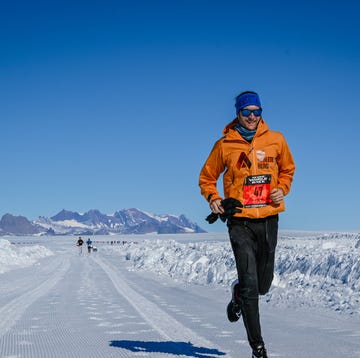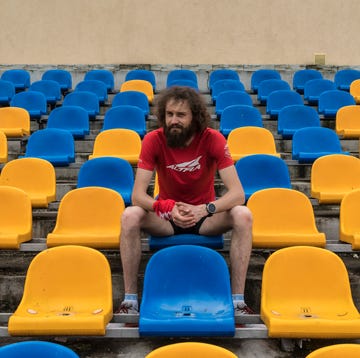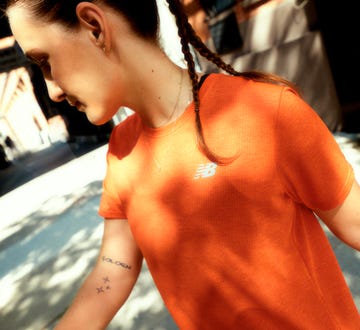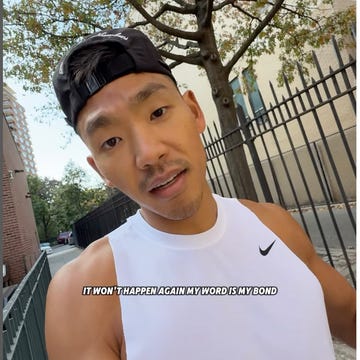Like many young Kenyans, Henry Wanyoike hoped to someday represent his country on the world stage as a professional runner. He ran several miles to and from school and could rip off a 13:50 5K. But shortly after suffering a mild stroke at age 21, he awoke one morning blind. "I'll remember the day always, the first of May 1995," he says. "It was quite tough, going to bed with good sight and the next day, you are not able to see."
Deeply depressed and suicidal, Wanyoike did little over the next three years. He eventually attended the Machakos Technical Institute for the Blind in Machakos, Kenya, learned braille, and began knitting scarves and sweaters for income. When the school's vice principal encouraged him to run, he said no. "I was so afraid," he says. But with the guidance of sighted runners, he started jogging again. He fell a lot, he says, but "I continued because I saw that something inside me hadn't died."
One year later, in 2000, he practically pulled his malaria-addled guide through the final 200 meters to win the 5000 meters at the Sydney Paralympic Games. His time of 15:46.29 was just three seconds shy of the world record for a blind athlete (specifically, a T11 athlete, one with near total to total blindness; Wanyoike is 95 percent blind).
Beating the record would require a more consistent training partner, so Wanyoike turned to his boyhood friend, Joseph Kibunja, who wasn't a runner—"I walked to school," he says—but who couldn't turn his buddy down. After 18 months of hard training, the pair smashed the world record in both the 5000 and 10,000 meters, running 15:17.75 and 32:34.31, respectively, at the 2002 World Championships in Lille, France. They reset those marks two years later to 15:11.07 and 31:37.25 at the 2004 Paralympic Games. A year after that, they ran the London Marathon in 2:32:51, a world record for T11 athletes. The following week (yes, you read that right, week), A Part of Hearst Digital Media.
Wanyoike's performances catapulted him to prominence in Kenya. He became front-page news and the recipient of two presidential awards, including the nation's highest, the Order of the Golden Heart. Driven to use his success to improve the plight of the disabled, who are often stigmatized in Kenya, he launched the Henry Wanyoike Foundation in 2005. With donations from individuals and corporations, the foundation has donated canes, wheelchairs, and sewing machines to programs for the disabled; awarded scholarships to amputees; and opened a kindergarten.
As its primary fund-raiser, the foundation hosts the Hope for the Future Run 7.5K in Kenya, which drew 18,000 participants last year. To date, Wanyoike and Kibunja have traveled to more than 700 schools across Kenya and Europe, talking to kids about acceptance and determination. "Our message is about teamwork," says Wanyoike. "I could not be a champion without it. When we work together, we can live in harmony and make this world better than we found it."
Wanyoike's call for inclusion has helped enlighten Kenya to the needs of people with disabilities. In 2010, the country modified its constitution to require all counties to include a representative from traditionally marginalized people, including the disabled. In 2013, Wanyoike was appointed to the Kiambu county assembly as part of that initiative. His story of triumph over adversity is now included in social studies textbooks for schoolkids.
That story continues. Wanyoike and Kibunja are looking to break their own record and run a sub-2:30 marathon in Rio at the 2016 Paralympic Games. Yes, heat could be a factor, and, yes, they'll be 42 and 41, respectively, but Wanyoike sees little else standing in their way. Vision, as he likes to point out, is more powerful than sight.
***
Other Hearst Subscriptions Published: Jan 12, 2015 8:00 AM EST.














